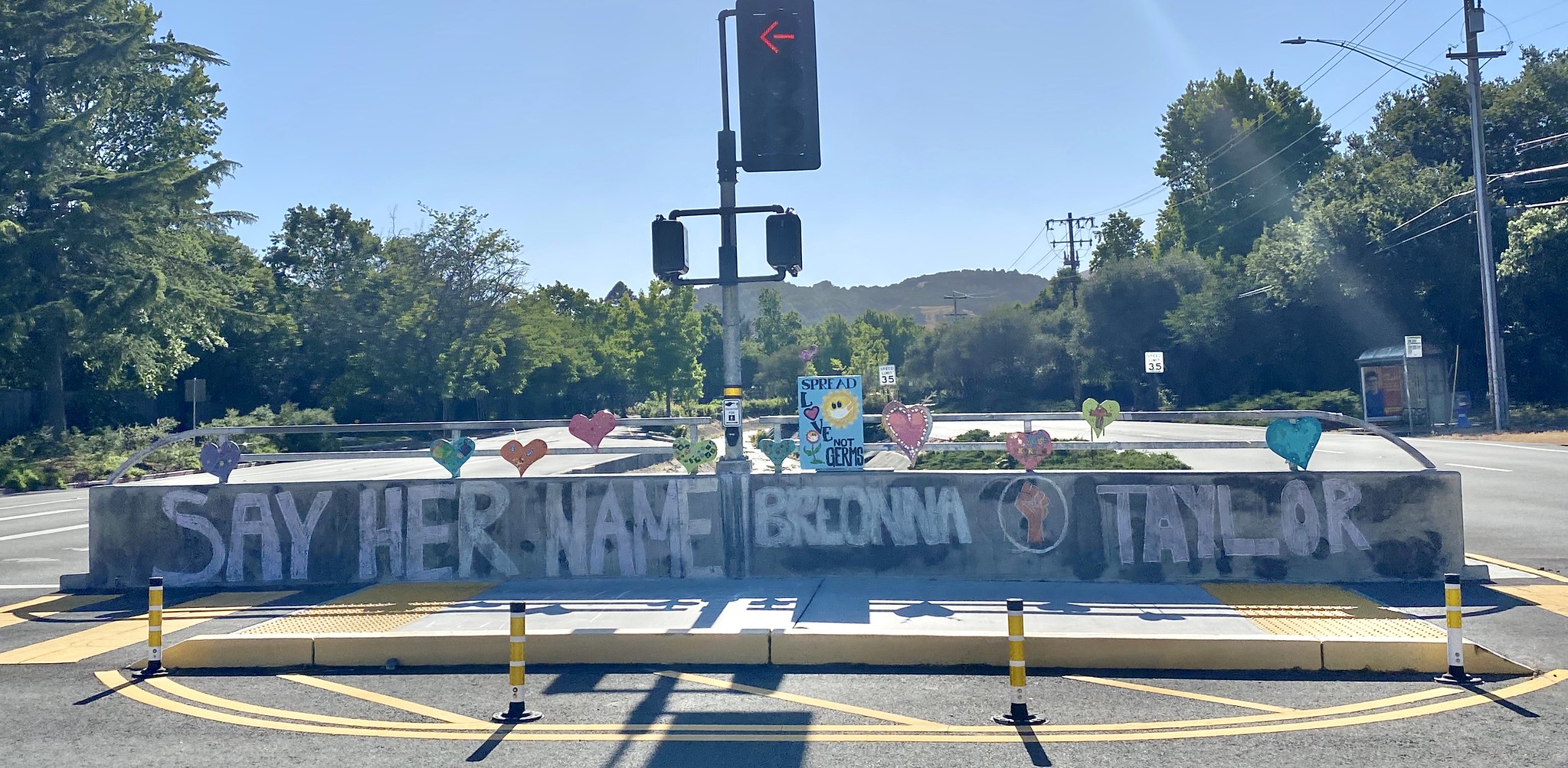The protests sparked nationwide—and worldwide—by the death of George Floyd have also concerned the March killing of a young Black woman, Breonna Taylor, by Louisville, Kentucky police during a “no-knock” raid.
Such raids have now become a target of local and national legislation. In Louisville, city lawmakers have announced a plan to significantly restrict their use. At the federal level, Democrats in the House of Representatives have released a new policing reform bill, called the Justice in Policing Act of 2020. It would ban no-knock raids nationally in all drug-related cases, among many other provisions.
What are “no-knock” police raids? Put simply, they involve police and other law enforcement agencies forcibly entering a suspect’s home without first knocking. A judge can issue a special search warrant to police—in theory—if they provide evidence that the suspect is either dangerous or would destroy evidence of a crime when the cops show up. But in practice, no-knocks are used widely in many cases, including for low-level drug-law violations. They can result in injury or death for civilians and also cops.
Louisville activists, protesters and community leaders are demanding change after the killing of Breonna Taylor. The 26-year old woman was an EMT with dreams of becoming a nurse. On March 13, officers with the Louisville Metro Police Department executed a narcotics search warrant on Taylor’s apartment. Three armed, plainclothes detectives burst into her home.
Taylor’s boyfriend, Kenneth Walker, used a licensed firearm to shoot at the intruders. The officers then fired back, shooting Taylor at least eight times. One of the sergeants was also injured. The police claim they were investigating a drug trafficker who was using Taylor’s address to receive drug shipments. They also claim they knocked before entering, though Taylor’s neighbors dispute this. No drugs were found in Taylor’s apartment, and none of the officers has been charged with a crime.
Two months passed with no change in Louisville. But on May 29, with pressure ramped up by the protests, Mayor Greg Fischer announced that he was indefinitely suspending all no-knock raids. Earlier that month, he had adjusted city policy to require cops to have all no-knock warrants approved by the police chief before going to a judge.
Then on June 3, the Louisville Metro Council public safety committee unanimously passed a measure to significantly restrict future use of no-knock raids.
Dubbed “Breonna’s Law,” the bill would require public safety to review all no-knock warrants four times a year. No-knocks would be banned for drug possession cases. The SWAT commander and police chief would have to review each warrant, cops executing the warrants would have to use body cameras, and captured footage would be saved for five years. In Taylor’s killing, no officers had their bodycams activated.
Breonna’s Law, which still doesn’t abolish no-knock raids, will be voted on by the full city council on June 11.
No-knock raids can be traced back to the 1970s and the onset of the War on Drugs. A series of Supreme Court decisions and state laws created the legal precedent for their use, and police now conduct over 20,000 such raids each year. No-knock raids allow cops to attempt to seize all of an alleged drug dealer’s supplies, as well as property, money and other resources through civil asset forfeiture.
Police have a lot of flexibility to argue the criteria—either a “dangerous” suspect or the potential destruction of evidence—to judges. They can point to a suspect’s legal possession of a firearm, past weapons charges, or alleged gang affiliation to argue that they are dangerous. In drug cases, they can argue that the supply could easily be flushed.
And judges rarely reject or deny these warrants. A 2000 Denver Post analysis showed that in one year, judges rejected only five out of 163 no-knock requests in the city. Judges even approved 10 percent of no-knock warrants when police had initially requested a standard warrant.
To quantify the dangers of such raids, the American Civil Liberties Union (ACLU) analyzed over 800 cases of SWAT exercises between 2011-2012. (Not all SWAT raids are necessarily no-knock raids, however, and vice versa.) The ACLU found that at least eight civilians were killed during raids in this period, including two potential suicides. A total of 46 civilians were injured.
In addition, the ACLU found, only 35 percent of raids turned up illegal items, while 36 percent did not. In 29 percent of raids, no findings were recorded or reported—possibly suggesting they did not find anything, and certainly indicating a lack of accountability.
Further adding to the harms, it is outrageously common for police to raid the wrong home. Just ask the NYPD: The commissioner estimated in 2003 that of the 450 raids New York police conducted every month, 10 percent targeted the wrong address.
It remains to be seen how far lawmakers in Louisville, DC and elsewhere will go toward ending this practice. Activists are calling for its abolition—along with that of policing itself—but currently, Oregon and Florida are the only two states that don’t permit no-knock raids.
Photo by Dana L. Brown via Flickr/Creative Commons 2.0.





Show Comments